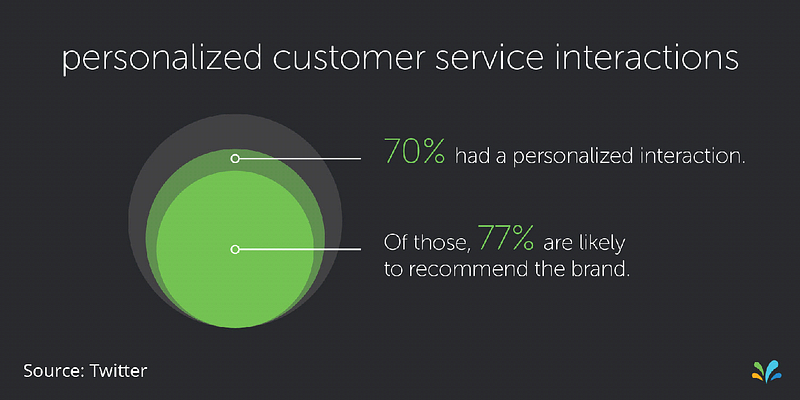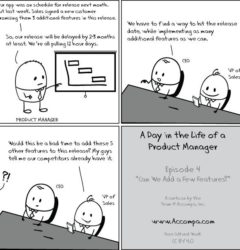5 Reasons Why Co-Browsing Equals Better Customer Interaction
13 Jun

Table of Contents
ToggleThe most compelling channels for addressing customer queries have always been phone and voice, but a recent study by Aspect Research shatters this notion.
“Phone/Voice is the most frustrating customer channel.”
Co-browsing is an alternative that offers a sophisticated solution for enabling customer executives to interact directly with the customer’s machine just as if they were physically present.
“Collaborative browsing (also known as co-browsing) is a software-enabled technique that allows someone in an enterprise contact center to interact with a customer by using the customer’s Web browser to show them something. For example, a B2B customer having difficulty placing an order could call a customer service representative who could then show the customer how to use the ordering pages as though the customer were using their own mouse and keyboard. Collaborative browsing can include e-mail, fax, regular telephone, and Internet phone contact as part of an interaction. Effectively, collaborative browsing allows a company and a customer to ‘be on the same page’.” — SearchCRM
Here are the 5 most compelling reasons for adding co-browsing to improve customer interaction:
Streamlined complaint resolution process.
The standard process for identifying, registering, and solving customer queries is:
- Customer contacts customer care to communicate the issue.
- The success of the communication depends on whether the customer clearly understands the problem. If not, the loop continues.
- The customer care representative offers standard solutions which have usually already been attempted by the customer.
- The call is eventually transferred to a technical team member who may request 24–48 hours to visit and correct the customer’s issue in person.
This process is extremely inefficient and includes multiple bottlenecks resulting in customer dissatisfaction.
Alternatively, co-browsing allows for:
- Customer service representatives evaluate the problem more quickly because they can view it as it appears on the customer’s device.
- Faster resolution of queries by customer service or the technical team.
Increased efficiency.
According to a conversion research by Emarketer, 54% of Millennials, 50% of GenXers, and 52% of Baby Boomers stopped doing business with companies because of poor customer service. Clearly, customer service is dependent upon the efficiency and effectiveness of the customer care team.
On any given day, customer service representatives are bombarded with queries ranging from product to technical to packaging and even to miscellaneous menial queries. Customer service representatives must be effective to solve them. That said, the geographic gap between customer and customer service representatives is a significant hurdle when it comes to certain technical and product-usage queries. As a result, communication becomes complicated and representatives need more time to resolve problems.
Alternatively, co-browsing is a key tool for representatives to solve customer queries in a fraction of the time they would have otherwise taken. And with less time spent on customer queries, representatives can assist more customers, thus increasing their efficiency.
Increased customer comfort.
For most customers, the complaint registration process is a most frustrating one. Businesses try to improve the back-end customer query resolution process, but forget to focus on the important touchpoint where the customers communicate discomfort. This is important in building trust and where the brand steps up and shows that it cares for the customers.
The real experiences are far from ideal, starting with automated recordings, phone calls, and lost emails and ending with the customer repeating the query multiple times to multiple representatives. This adds to the dissatisfaction of the already puzzled customer. Accenture USA research data shows that 89% of customers get frustrated when they are forced to repeat their queries. The customer representatives are required to deal with multiple queries each day, so they can’t be blamed for this.
Co-browsing solves this problem. At the end of the day, the customer is a user, not a technical expert. They can’t be expected to clearly communicate the problem every time. But co-browsing can easily assist the customer by allowing the customer to clearly identify the problem.
Added visual engagement.
Forrester published research shows that over 44% of customers say that access to a live representative while making an online purchase is the best service a business can offer.
This exemplifies the basic logic of consumer-brand interaction: most interaction between a customer and brand is one-sided. Brands spend capital on campaigns and receive feedback in the form of increased sales. The real interaction happens when a consumer (prospective or existing) reaches out to a brand to ask a query or register a complaint. This is the brand’s opportunity to interact with the customer and build on its brand equity.

Flying in the face of this simple logic is the customer service system. Most customer query-solving happens at the back-end where customers receive an email stating their query has been resolved. This attitude fails to show the customer that the brand really cares.
Famous novelist, Stephen King, said in his book, On Writing, “As a writer, your job is not to write; your job is to show.” The same can be said about resolving customer queries. Brands can spend as much as they want on their marketing campaigns, but when they leverage co-browsing, the customer sees that their problem can be solved in real-time. This is the visual element that makes co-browsing so impactful.
Personalized customer interaction.
Many e-commerce brands have the same universal model for handling customer queries — fill in the form and we’ll get back to you. Most customers are skeptical about this tactic, wanting real solutions in real-time instead. Co-browsing helps brands meet those expectations.

The websites at the top of the customer experience curve know that customer accessibility is key. For this reason, top e-commerce players have co-browsing and customer service options available at the click of a mouse. Co-browsing helps customers by solving their queries and guiding them through the customer funnel. It makes them a promoter of the brand by helping them throughout their journey and interaction with the brand.
It is imperative to understand that handling customer queries is not a business’ primary focus but rather, an additional opportunity for restating a brand’s promise, living up to it, and delivering when the customer needs it the most rather than opting for millions in paid media.
This article is a guest post by Sam Makad for zipBoard.
Get quick feedbacks from your stakeholders with zipBoard
Request a personalized demo to know more about how you can manage feedback and share it effectively with your internal teams to get quick feedback from them.
Get DemoRelated Post
Recent Posts
- Why Your Team Needs a Content Feedback System (Not Just Comments in Docs) May 28, 2025
- Content Approvals Are Slowing You Down — Here’s the Fix May 26, 2025
- How to Streamline Content Review and Approval — Best Practices, Tools & Automation May 12, 2025
- What Is Content Operations? And Why It Breaks Without a Feedback & Approval System May 3, 2025
- Why Designers Need a Website Visual Feedback Tool: Improve Design Reviews & Client Collaboration April 25, 2025
©️ Copyright 2023 zipBoard Tech. All rights reserved.


